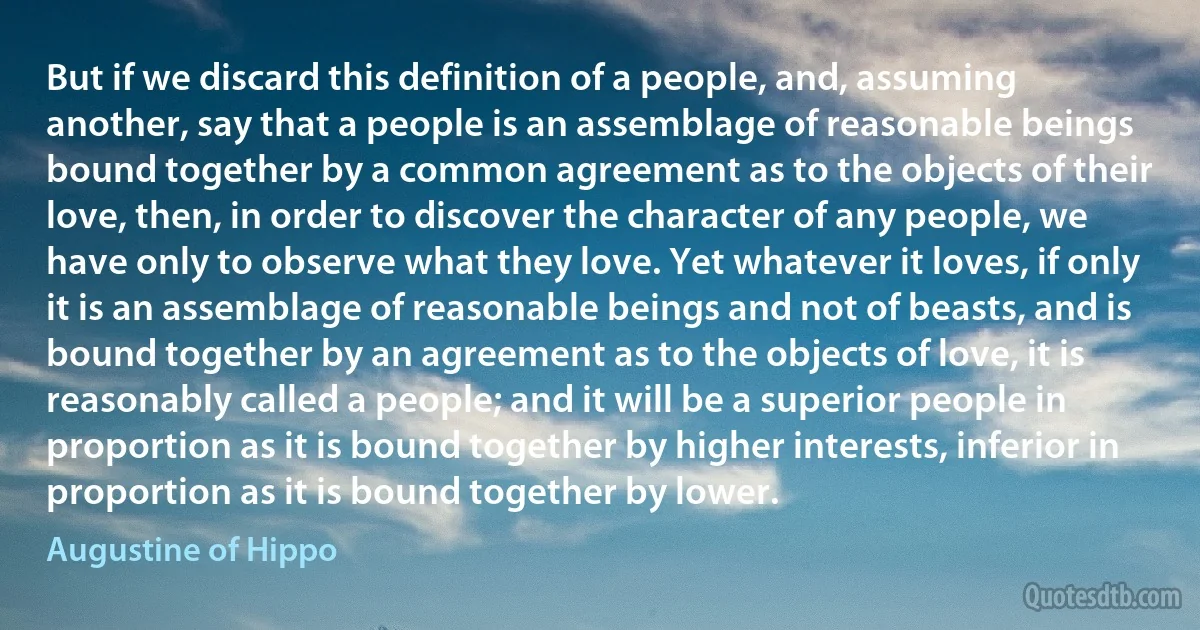Assuming Quotes - page 5
[The] Third (problem with Darwinism), which I think is overwhelming, and just sort of blows the whole theory of Random Mutation out of the water, is, at least, let me say, raises big questions, that is. Assuming it all did happen by Random Mutation and Natural Selection, where did the laws of gravity come from. Where did the laws of thermodynamics come from? Where did the laws of motion and, of heat come from? Where, I guess that's the same as thermodynamics. Where did all these laws, that make it possible for the universe to function, where did they all come from? Why isn't all just chaos and everything collapsing in on itself and killing everything?

Ben Stein
We know, since the theory of relativity at least, that empirical sciences are to some degree free in defining dynamical concepts or even in assuming laws, and that only a system as a whole which includes concepts, coordinating definitions, and laws can be said to be either true or false, to be adequate or inadequate to empirical facts. This "freedom," however, is a somewhat doubtful gift. The manifold of possibilities implies uncertainty, and such uncertainty can become rather painful in a science as young as psychology, where nearly all concepts are open and unsettled. As psychology approaches the state of a logically sound science, definitions cease to be an arbitrary matter. They become far-reaching decisions which presuppose the mastering of the conceptual problems but which have to be guided entirely by the objective facts.

Kurt Lewin
Assuming... that all available goods of higher order are employed in the most economic fashion, the value of a concrete quantity of a good of higher order is equal to the difference in importance between the satisfactions that can be attained when we have command of the given quantity of the good of higher order whose value we wish to determine and the satisfactions that would be attained if we did not have this quantity at our command.

Carl Menger
I also knew the formula that expresses the energy distribution in the normal spectrum. A theoretical interpretation therefore had to be found at any cost, no matter how high. It was clear to me that classical physics could offer no solution to this problem, and would have meant that all energy would eventually transfer from matter to radiation. ...This approach was opened to me by maintaining the two laws of thermodynamics. The two laws, it seems to me, must be upheld under all circumstances. For the rest, I was ready to sacrifice every one of my previous convictions about physical laws. ...[One] finds that the continuous loss of energy into radiation can be prevented by assuming that energy is forced at the outset to remain together in certain quanta. This was purely a formal assumption and I really did not give it much thought except that no matter what the cost, I must bring about a positive result.

Max Planck
Universal Peace, assuming it to be in the fullest sense realizable, might not require eons for its accomplishment, however probable this may appear, judging from the imperceptibly slow growth of all great reformatory ideas of the past. ... Our accepted estimates of the duration of natural metamorphoses, or changes in general, have been thrown in doubt of late. The very foundations of science have been shaken.

Nikola Tesla
The sham cause in physical influence consists in rashly assuming that the commerce of substance and transitive forces is sufficiently knowable from their mere existence. Hence it is not so much a system as rather the neglect of all philosophical system as a superfluity in the argument. Freeing the concept from this defect, we shall have a species of commerce alone deserving to be called real, and from which the whole constituting the world merits being called real, and not ideal or imaginary.

Immanuel Kant
By this way of Analysis we may proceed from Compounds to Ingredients, and from Motions to the Forces producing them; and in general, from Effects to their Causes, and from particular Causes to more general ones, till the Argument end in the most general. This is the Method of Analysis: and the Synthesis consists in assuming the Causes discover'd, and establish'd as Principles, and by them explaining the Phænomena proceeding from them, and proving the Explanations.

Isaac Newton
Many Americans make the mistake of assuming that space research has no values here on earth. Nothing could be further from the truth. Just as the wartime development of radar gave us the transistor, and all that it made possible, so research in space medicine holds the promise of substantial benefit for those of us who are earthbound. For our effort in space is not as some have suggested, a competitor for the natural resources that we need to develop the earth. It is a working partner and a coproducer of these resources. And nothing makes this clearer than the fact that medicine in space is going to make our lives healthier and happier here on earth.

John F. Kennedy
We do not want to fight - but we have fought before. And others in earlier times have made the same dangerous mistake of assuming that the West was too selfish and too soft and too divided to resist invasions of freedom in other lands. Those who threaten to unleash the forces of war on a dispute over West Berlin should recall the words of the ancient philosopher: "A man who causes fear cannot be free from fear."

John F. Kennedy
The rise of the modern corporation has brought a concentration of economic power which can compete on equal terms with the modern state - economic power versus political power, each strong in its own field. The state seeks in some aspects to regulate the corporation, while the corporation, steadily becoming more powerful, makes every effort to avoid such regulation... The future may see the economic organism, now typified by the corporation, not only on an equal plane with the state, but possibly even superseding it as the dominant form of social organization. The law of corporations, accordingly, might well be considered as a potential constitutional law for the new economic state, while business practice is increasingly assuming the aspect of economic statesmanship.

Adolf A. Berle



